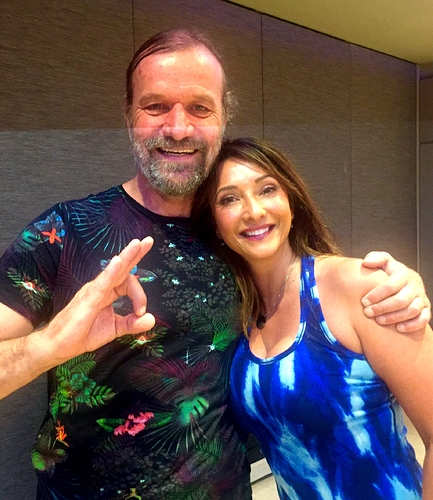Hi All,
I’ve read tons of posts about boosting metabolism & eating to satiety (thanks to those who so willingly share) but i’ve got a question I haven’t seen answered.
Just learned my RMR is only 1100 calories/day. I’m 50yo, 5’4", 131 pounds. I weight train + conditioning 4-5 days/week (moderate effort). Fasting insulin < 2 as of a year ago. At that time I was the fittest/leanest of my life, eating about 1800 calories/day, LCHF (intermittent ketosis). Started gaining body fat last August, reached El Tubbo by November. My knee-jerk was calorie restriction–I KNOW it’s bad, but I was scared. I now average around 1400kcal/day (100g+ fat, low carb, mod protein). I finally started losing weight last month, partly from a water fast, partly from improved thyroid & sex hormones and better digestion. I no longer feel the need to calorie restrict, but I’m fully sated at that intake.
I start an extended water fast on March 3 (44.5 pounds of fat to sustain me). Can anyone offer advice on how best to raise my metabolism in the short window prior to the fast? I’m not sure feast/fast/feast makes sense this close to an EF (maybe it’s fine, dunno). I could just feast, but not keen to gain weight–just in my jeans after months of stretch pants. And, in general, what would ‘feast’ mean for me?? I’m fully sated at an average of 1400 calories.
Any thoughts, ideas, wisdom, research you can share would be much appreciated!




 . But it may be correct, maybe I tanked my BMR when I started calorie restricting last fall. I’m currently in Smalltown USA so Uni testing is the only option. I’d like to do a post-fast BMR + body composition in NorCal. If anyone has suggestions for reasonably priced options (or better yet, a scientist/ lab who needs a compliant Guinea pig) I’d love to know.
. But it may be correct, maybe I tanked my BMR when I started calorie restricting last fall. I’m currently in Smalltown USA so Uni testing is the only option. I’d like to do a post-fast BMR + body composition in NorCal. If anyone has suggestions for reasonably priced options (or better yet, a scientist/ lab who needs a compliant Guinea pig) I’d love to know.


